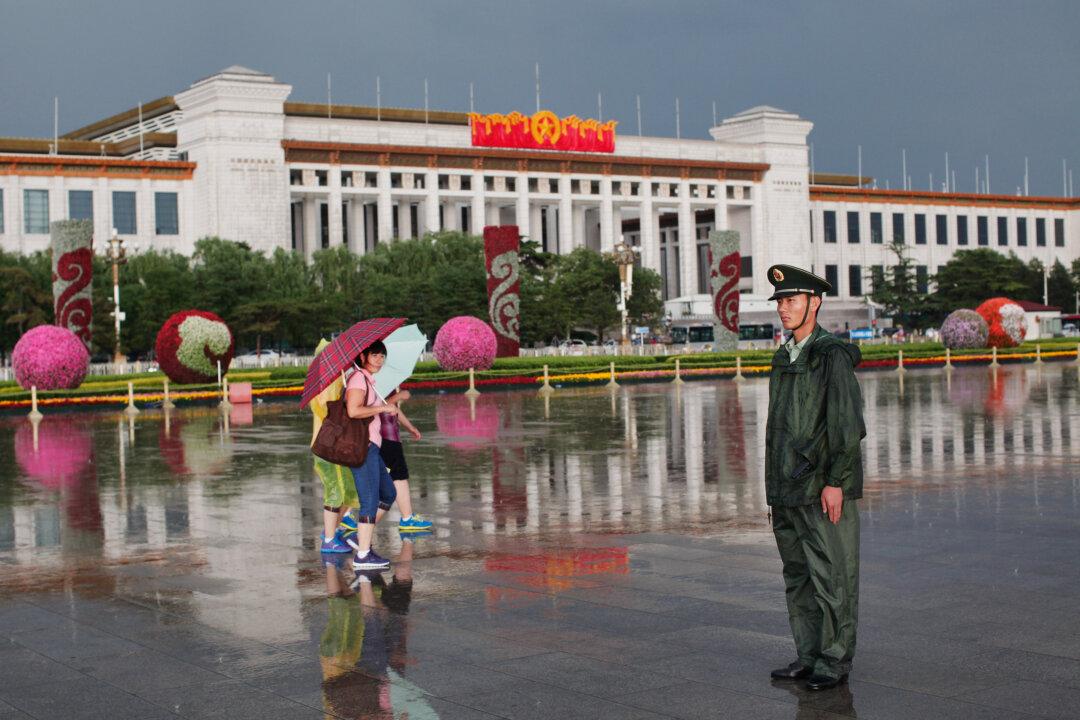China’s anti-corruption campaign has ensnared yet another senior official, just weeks into the new year.
The Communist Party’s internal watchdog, the Central Commission for Discipline Inspection (CCDI), announced on its website that Zhao Zhengyong, the former Party boss for the northwestern province of Shaanxi, is suspected of “seriously violating discipline and law,” according to a statement published on Jan. 16.
Since taking power in 2012, Chinese leader Xi Jinping has launched a sweeping campaign to rid the Party of misbehaving officials, who were often also members of an opposition faction loyal to former Party leader Jiang Zemin.
Corruption
Some details of Zhao’s alleged crimes were disclosed in a television documentary broadcast on state television on Jan. 9.
The footage showed luxury villas—which, according to the broadcaster, had been illegally constructed—being razed to the ground. Though the documentary did not name Zhao specifically, it repeatedly criticized the “main leader of the Shaanxi provincial committee at the time”—who was Zhao.
The program also noted that Zhao had “agreed overtly, but secretly opposed” six instructions from Xi.
Chinese financial publication Caixin also received tips from insider sources saying Zhao received bribes in exchange for economic development in local towns in Shaanxi.Influential TV host Cui Yongyuan claimed on social media that China’s top court had lost documents crucial to the case.
The post sparked discussion and prompted China’s head legal agency, the Central Political and Legal Affairs Commission, to open an investigation into the loss of the documents.
Connections
The Caixin report also explained that Zhao was close with Wei Minzhou, the Party boss in charge of Xi’an City, a metropolis within Shaanxi known as the home of the ancient terracotta warriors. Wei had often gifted bribes to Zhao in order to curry favor.
Wei, in turn, had ties to Ling Jihua, a former top political aide. Ling is a central figure in the Jiang faction and was sentenced to life imprisonment in 2016.
In November 2018, Wei himself was also sentenced to life imprisonment on corruption charges.
Crimes Against Humanity
But the Chinese regime has not acknowledged Zhao’s darker crimes.
According to research conducted by the U.S.-based nonprofit World Organization to Investigate the Persecution of Falun Gong (WOIPFG), Zhao was a key figure in carrying out Jiang’s national campaign to persecute adherents of the spiritual practice Falun Gong, also known as Falun Dafa.
Jiang outlawed the practice in July 1999 amid its rising popularity, fearing its large following (official estimates of roughly 100 million at the time) threatened his authority. Since then, hundreds of thousands are estimated to have been arrested and detained in China’s jails, prisons, and brainwashing centers—where many are tortured.
According to Minghui.org, a U.S.-based website that tracks the persecution of Falun Gong in China, there are 4,276 practitioners confirmed to have died as a result of the persecution, though the true number is likely higher due to the difficulty of passing sensitive information out of China.
Between 2000 to 2005, while serving as the Party secretary for the local branches of the Political and Legal Affairs Commission in Anhui and Shaanxi provinces, Zhao oversaw the persecution of local Falun Gong practitioners, including arrests, propaganda efforts to vilify the practice, and campaigns to confiscate and destroy books of the practice’s teachings, according to WOIPFG.
At the time, the commission was the most powerful security agency in China, in charge of all police forces, judicial systems, and detention facilities in the country.
In 2010, Zhao was among a list of top Party officials sued by Falun Gong adherents in Taiwan for crimes of genocide and transgressions of civil and human rights conventions. Falun Gong practitioners filed the complaint while Zhao was visiting Taiwan.





